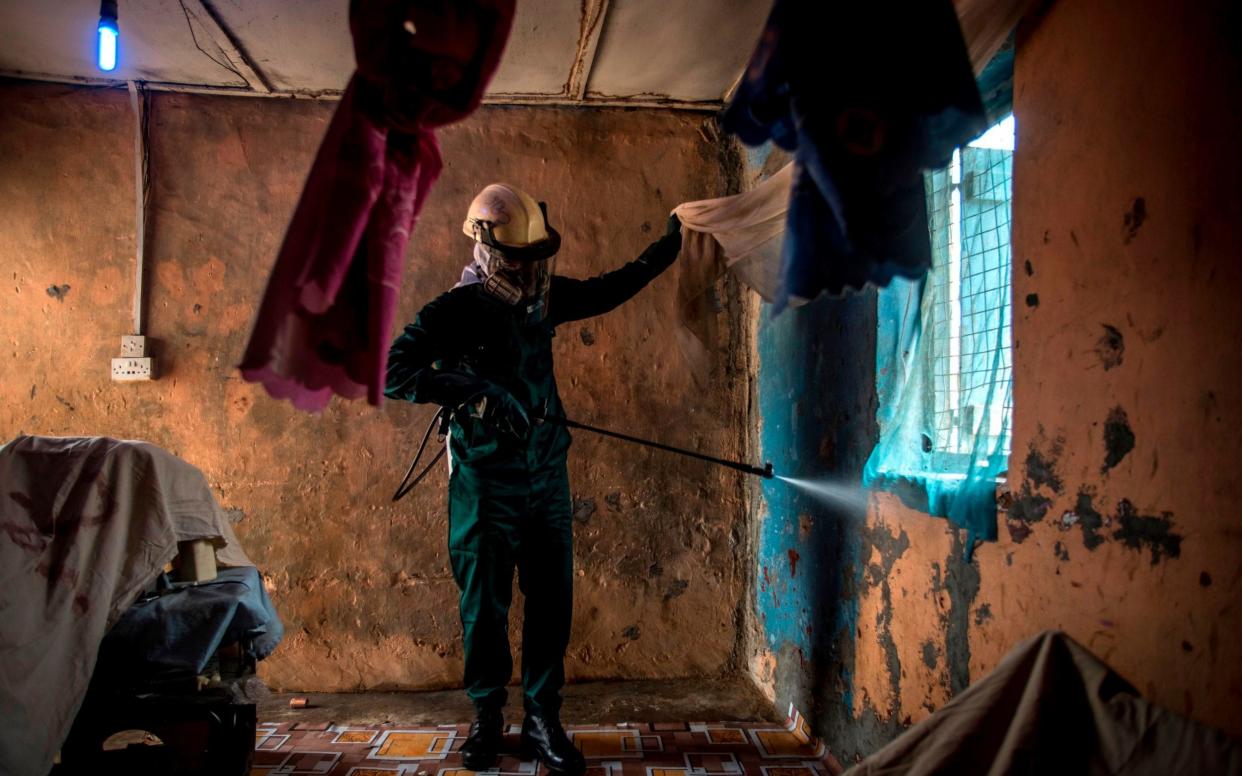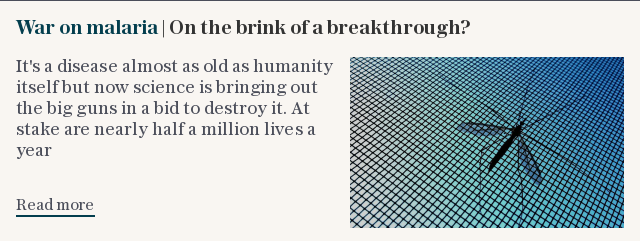Countries hardest hit by malaria see rise in cases

The number of cases of malaria in 10 of the countries worst affected by the disease has gone up over the last year, despite a huge global effort to tackle the mosquito-borne disease.
The annual World Malaria Report shows that in 2017 there were an estimated 219 million cases of malaria globally, with around 435,000 deaths.
Last year’s report, giving the data for 2016, showed that there were 216 million cases of malaria worldwide, resulting in an estimated 445,000 deaths overall.
Pedro Alonso, director of the World Health Organization’s global malaria programme, said that there was “light and shade” in the annual report.
“[The figures] leave us at about the same level as we were in in 2013 to 14 and it confirms the finding of last year that progress has stalled,” he said.
Dr Alonso said he was particularly concerned about the report’s finding that, in 2017, there were an estimated 3.5 million more cases of malaria in the 10 highest burden African countries over the previous year – Burkina Faso, Cameroon, Democratic Republic of the Congo, Ghana, Mali, Mozambique, Niger, Nigeria, Uganda and Tanzania. There were an estimated 151 million malaria cases and 275,000 malaria deaths in these countries in 2017.

But some countries have made great strides in fighting the disease: the number of cases in India – which accounts for around two thirds of the malaria cases outside Africa – fell by nearly a quarter between 2016 and 2017.
Other countries that have made great progress in 2017 include Ethiopia, where the number of cases fell by nearly nine per cent; Pakistan, where the rate fell by 20 per cent; and Rwanda, which saw a reduction of just over six per cent.
Dr Alonso said the one “common denominator” among countries which had seen significant drops in the number of cases was a strong commitment from the top to wiping out the disease.
Kesete Admasu, chief executive of the Roll Back Malaria Partnership, said the timely use of data to track cases had also had an impact.
“Improving surveillance capacity and looking at what the data tells us more or less on a real time basis – this is what has been driving success in these countries. Directing malaria control interventions and investment depending on what the data says has had a real impact,” he said.
Dr Alonso said that proven malaria control tools, such as insecticide-treated bed nets and intermittent preventive treatment (IPT) for pregnant women, were still not being used in some of the countries hardest hit by malaria.

“About half of people in endemic countries are not sleeping under insecticide treated bed nets. And an area I feel very strongly about are interventions that cost close to nothing, like IPT for pregnant women. The number of pregnant women getting three doses of the treatment is still at a very low level – just 22 per cent,” he said.
Funding for the global malaria response in 2017 remained largely unchanged compared to 2016. Some $3.1 billion was available for global malaria control and elimination programmes in 2017, well below the funding target for 2020.
Governments of endemic countries contributed 28 per cent of total funding ($900 million) in 2017, a figure similar to 2016.
Earlier this year, the leaders of the Commonwealth countries – including those hardest hit by the disease – pledged £1.5bn to fight the disease over the next five years with the aim of cutting the number of cases by half. But this money is not included in this year's report.
James Whiting, chief executive of Malaria No More UK, said: “Today's report shows that malaria endemic countries can and must take ownership of this commitment – and deliver it. Hundreds of millions of parents should not have to put children to bed in fear of malaria-carrying mosquitoes, when bed nets and treatment are so inexpensive.”
Professor Colin Sutherland, co-director of the Malaria Centre at the London School of Hygiene & Tropical Medicine, said the report confirmed that the world was both winning and losing the fight against malaria.
He added: “The UK government must continue its leading role in combating malaria, in particular focusing on the high burden countries of Africa and South Asia. Priorities should be the efforts to combat both parasite resistance to malaria drugs, and mosquito resistance to insecticides.”

Protect yourself and your family by learning more about Global Health Security

 Yahoo News
Yahoo News 
